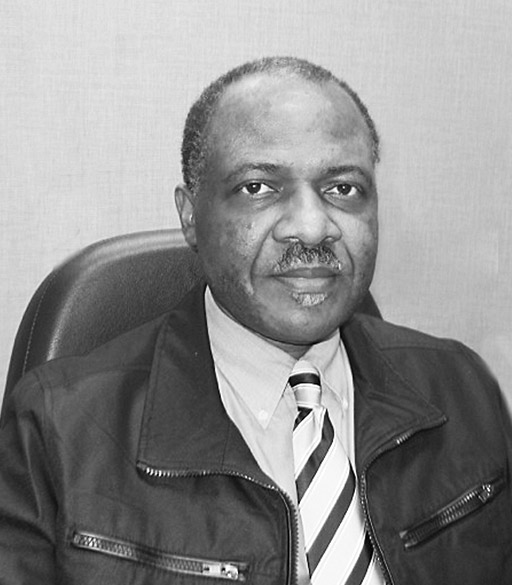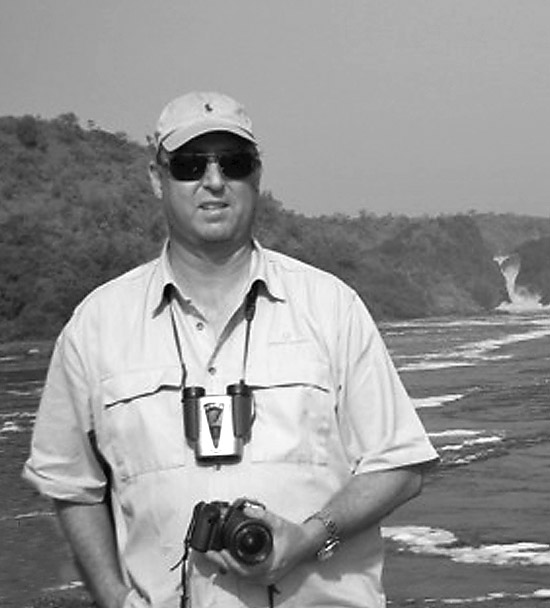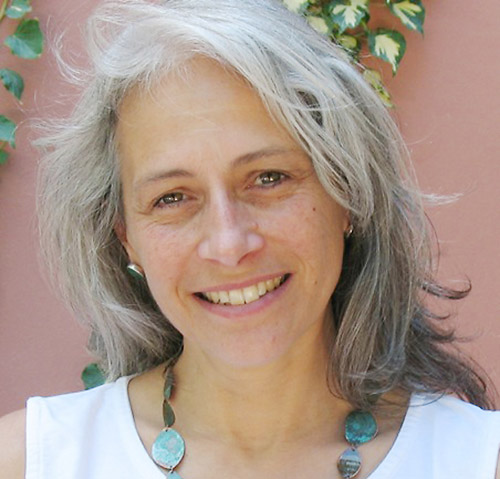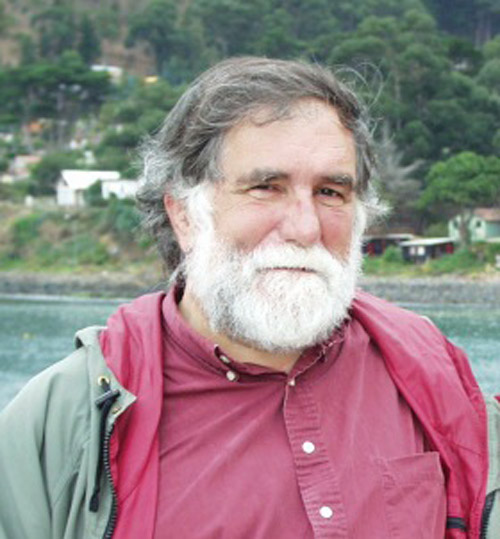Autumn 2014–
Winter 2015
Alumni Feature
Paulinus Chigbu
PHD, UW SCHOOL OF FISHERIES, 1993
Trophic role of longfin smelt in Lake Washington
(Tom Sibley, faculty adviser)

Photo: Judy Rose
Paulinus is a native of Mbaise, Nigeria. He attended the University of Benin (UNIBEN), Nigeria, for his undergraduate studies. Working with Professor Austin Egborge, he studied rotifers in a reservoir, which sparked his interest in aquatic biology. He then enrolled in a master‘s program at UNIBEN, during which time he received a Fulbright scholarship to pursue a PhD at UW Fisheries.
After completing his MS, he came to the UW to work with Professor Tom Sibley. Paulinus noted, “Dr. Sibley supported my studies and enabled me to attend and present my research at major professional conferences almost every year I was at UW. That helped me to interact with scientists and students from various institutions.”
Paulinus described his PhD study: “I was investigating population and trophic ecology of longfin smelt in Lake Washington. Smelt population abundance seemed to have increased following improvements in the environmental quality of Lake Washington and its major tributary, the Cedar River.” His research helped document the responses of smelt to the changes, as well as address concern that longfin smelt were competing with juvenile sockeye salmon for food.
Paulinus said many of his most memorable interactions were with his fellow graduate students. He recalled, “They volunteered to help me with nighttime sampling to collect fish, conduct zooplankton tows, and trap smelt using fyke nets.” And in turn, Paulinus assisted them with surveying stream fishes; transporting, stocking, and feeding salmon in net pens; and recording telemetry of piscivorous fish in Lake Washington.
After earning his PhD, Paulinus served as an assistant professor of Biology and director of the Marine Science Program at Jackson State University (JSU), Mississipi. At JSU, one of his projects focused on the influence of interannual variations in climatic factors on water quality dynamics and shellfish management. He noted, “This resulted in developing a decision support tool for managing shellfish in Mississippi Sound.” He ultimately went to the University of Maryland Eastern Shore (UMES), where he serves as professor of Marine and Fisheries Science and director of the NOAA Living Marine Resources Cooperative Science Center.
At UMES, Paulinus teaches and mentors undergraduates and graduate students in the Marine Estuarine and Environmental Science program. He talked about some of his current research with these students:
“We are trying to understand the influence of climate variability and human activities on water quality, fishes (for example, summer flounder, bay anchovy), and invertebrates in the coastal bays of Maryland and the coastal ocean of the mid-Atlantic.” He also had the pleasure of establishing and coordinating a Research Experience for Undergraduates program in marine and estuarine science at UMES.
Paulinus credits his education at SAFS for preparing him for his career as a faculty member, research administrator, and student mentor. He is also grateful for the financial support he received from SAFS endowments, including the Cobb Scholarship, the Chapman Scholarship, and the Mason Keeler Endowment for Excellence: “These awards enabled me to complete my research work.”
Paulinus considers it important to strike a healthy balance between work and “life.” He qualified this: “Some academics are so interested in their work that it becomes their ‘life’ and they are happy doing that.” As far as his own extracurricular activities go, he said “I enjoy any opportunity I get to play soccer, tennis, and chess.”
Geir Oddsson
MS, UW School of Fisheries, 1995
Physiological stress and survival in trawl caught and discarded Pacific halibut (Hippoglossus stenolepis Schmidt 1904) (Ellen Pikitch, faculty adviser)

Photo: Ragna Gudbrands
Geir Oddsson was born in Reykjavik, Iceland. Early on, he developed an interest in the ocean: He said, “The sea has been an integral part of people’s everyday life—a means of income and survival—through the centuries on that little rock in the North Atlantic.” The close relationship Icelanders have had with the ocean has instilled a healthy respect for the sea and an interest in the sustainability of its resources.
Like others of his generation, Geir was influenced by Jacques-Yves Cousteau. He read Cousteau’s “The Silent World” at a young age, which motivated him to become a fisheries scientist.
As an undergraduate, Geir studied biology at the University of Iceland (UI). At that time, he also had a part-time job at the Icelandic Marine Research Institute (MRI). With encouragement from the MRI director, upon graduation, he took a position as the head of MRI’s laboratory on the west coast of Iceland.
Most Icelandic fishery scientists looked to Norway for their graduate studies, but Geir instead decided to check out universities on the US west coast. He visited the UW School of Fisheries, noting “It was one of the top fisheries programs, and I made a good enough impression to be admitted.”
At UW Fisheries, Geir was affiliated with the School’s Fisheries Research Institute (FRI). He described his advising professor, Ellen Pikitch, who was FRI director at that time: “She was a whirlwind of ambition and energy, which rubbed off on her students and staff.”
Coming from the North Atlantic, Geir jumped at the chance to do field research in the North Pacific. For his MS research, Geir investigated the physical and physiological parameters that could predict the survival of Pacific halibut as bycatch in the Alaskan trawl fisheries.
After completing his MS, Geir’s career really took off. Ellen Pikitch had just accepted a new job in New York, and she brought Geir and another Fisheries student, Beth Babcock, with her. Together they launched the Marine Protection Program at the Wildlife Conservation Society: “I was a research fellow and it was an invaluable experience,” Geir noted.
In 1998, Geir took a position at the UI, Reykjavik, as the director of the new Environmental Research Institute, which included overseeing an interdisciplinary MS program on environment and natural resources. He said, “My time at UW Fisheries gave me the background to be able to build a successful multidisciplinary program at the UI.”
While at UI, Geir also consulted for the FAO and the World Bank, built a successful IT start-up business focusing on location-based technology solutions for the mobile industry and, between 1999 and 2001, served as the secretary of the Icelandic Parliament’s Committee on Natural Resources. In 2006, he was recruited to the Icelandic International Development Agency, where he served as head of several departments and programs that focused on missions in Central America and Uganda.
Currently, Geir lives in Copenhagen, where he is senior policy advisor at the Nordic Council of Ministers, comprising Denmark, Finland, Iceland, Norway, and Sweden, as well as Åland, Greenland, and the Faroe Islands. He elaborated: “I am responsible for Nordic cooperation, regional policy, and strategy development on marine resources, fisheries, and aquaculture as well as the biobased economy.”
Geir’s job entails supporting political processes at a regional level based on national and international policies and strategies. He added, “Fisheries and aquaculture are prominent industries in the Nordic countries and profiling sustainable Nordic solutions to the European Union and to international institutions is a big part of my job.”
Looking back at his time at UW Fisheries, Geir said: “It was an invaluable part of my development as a scientist and a person. I was lucky to work with a fantastic group of students and staff. There is no doubt that having the luck to study at Fisheries shaped my future in a positive way.”
Ana Parma
MS, UW School of Fisheries, 1989
Contributions to stochastic models for the management of exploited fish populations (Doug Chapman, faculty adviser)

Photo courtesy of Ana Parma
Ana was born and raised in La Plata, Argentina. She attended the University of La Plata in Buenos Aires, where she earned a biology degree in 1977, during a “very difficult period in Argentina, when political persecutions under the military dictatorship took a heavy toll on academic institutions.”
In 1979, Ana participated in an international marine training program held at the Duke University Marine Lab, which included a trip to other US marine research centers. As part of this program, she visited the UW School of Fisheries (now SAFS) and decided she wanted to return as a graduate student some day. For the next few years, Ana worked as a marine fisheries biologist in a small coastal lab in Patagonia. In 1983, she was awarded a scholarship from the Organization of the American States to pursue graduate studies at the UW.
At UW Fisheries, Ana sought to study population modeling and management strategy evaluation, but her quantitative background was “close to nonexistent” when she arrived. Fortunately, the Fisheries program was very flexible and allowed Ana to tailor her studies to her needs and interests. This included having Rick Deriso—affiliate faculty and stock assessment scientist with the International Pacific Halibut Commission (IPHC)—as her effective thesis supervisor.
Ana’s PhD research was focused on optimal harvesting in the face of uncertainty, motivated by classical debates about factors driving productivity trends in Pacific halibut. She noted that, while her project was all “desk work,” she participated in field research at IPHC. Ana also served as a teaching assistant.
After earning her PhD at Fisheries, Ana continued her work with the IPHC, first as a post-doc and then as a researcher in charge of the harvest policy evaluation. She participated in UW activities during her 10 years at the IPHC.
When Ana returned to Argentina, she took a job with the Centro Nacional Patagónico (CENPAT) in Puerto Madryn. While this organization is not an academic institution, its staff works with university students, both on CENPAT projects and on student research at other institutions. Ana has worked with students to investigate aspects of population dynamics of scallops, mussels, and clams; monitor reef fish populations and recreational fisheries; and analyze fleet behavior in shellfish fisheries.
Like her late husband, Lobo, Ana has maintained close contact with SAFS over the years: “I’ve participated in research projects led by SAFS faculty and have interacted with faculty and post-doctoral students in projects conducted in other centers such as the National Center for Ecological Analysis and Synthesis in California. Also, I have served on PhD committees for several SAFS students.”
She reflected on her time at Fisheries: “It was one of the most fulfilling times in my life: years of learning and discovery, of growing personally and academically. My entire career was shaped through my interactions within the School and I still have intact the same sense of belonging I had when I was a student there.” Like so many students, Ana benefitted from several Fisheries endowments, including the Faculty Merit Award.
José M. “Lobo” Orensanz
PhD, UW School of Fisheries, 1989
Studies on growth and population dynamics of a stable native littleneck clam
(Proto staminea) population (Garrison Bay, North Puget Sound, and its cancrid crab predators (Cancer spp.)

Photo: Billy Ernst
José M. “Lobo” Orensanz passed away suddenly on January 5. In honor of Lobo, we have established the Lobo Orensanz Endowed Fund for Student Support. Please see From the Director for more about Lobo and how you can contribute to his endowment.
Lobo was born in Mar del Plata, Argentina. In 1977, he moved to Ensenada, Mexico, during the days of his country’s last military dictatorship. Originally trained as a zoologist—he earned his licenciatura (“permission to teach”) degree in zoology from the National University of La Plata, Argentina—Lobo said, “I was motivated to pursue a degree in Fisheries because of my involvement with research and management of shellfisheries in Patagonia.”
In 1979, Lobo moved to Seattle to pursue a graduate degree at SAFS, with Vince Gallucci as his advising professor. At SAFS, Lobo’s PhD research was focused on the biology and management of shellfish resources. This entailed a lot of time in the San Juan Islands: field work at Garrison Bay and lab work at the Friday Harbor Laboratories. He also served as a teaching assistant for undergraduate courses on population dynamics and collaborated with SAFS Professor David Armstrong on projects dealing with Dungeness crab ecology and population dynamics.
While working towards his SAFS degree, Lobo also pursued graduate studies in zoology at the University of La Plata in Buenos Aires. With funding from the National Science Foundation, he investigated polychaete worms in the Antarctic and Subantarctic seas, and he earned his first PhD in 1987.
Lobo returned to Argentina in 1989, but he noted, “The country spiraled into a deep economic crisis, so I returned to SAFS, where I held research associate and professional staff positions.” He worked with David Armstrong, co-teaching the invertebrate fisheries course and collaborating on research including the impact of the Exxon Valdez oil spill in Prince William Sound, snow crab in the eastern Bering Sea, and other crab-related projects. He then returned again to Argentina, where he and his wife, Ana Parma (also a SAFS graduate; see opposite page), worked at the Centro Nacional Patagónico (CENPAT).
His CENPAT work notwithstanding, Lobo continued to maintain close ties with SAFS: “I worked with David on studies of snow crab from the eastern Bering Sea, and co-authored several papers with Professor Ray Hilborn that focused on fisheries management. I also served on graduate student committees.”
When asked about the value of his time at SAFS, Lobo said, “Beyond the obvious—academics and training—SAFS and UW in general provided an ambit where I was able to enjoy the best things in life, and a place to recover, affectively and intellectually, from the inevitable wounds left by life in the Argentina of the 1970s.” Lobo benefitted from financial support during his PhD studies at SAFS, including the Faculty Merit Award.
Lobo had a deep interest in the natural history of southern South America that goes beyond the strictly academic. He said, “My interactions with artisanal fishers has been a major source of social and epicurean motivation.”
Editor’s note: Since Lobo and Ana lived and worked together, we couldn’t resist asking how their relationship came about. Lobo obliged: “Ana and I met in the ‘70s in Puerto Madryn, where we work now. I was working on a scallop project in Patagonia, and Ana showed up with a class taking a course field trip on marine botany. During the next year or so, she returned several times. Almost a decade after I met her, we reconnected when we were both at SAFS.” They married in the mid-90s and have one daughter, Mora.
